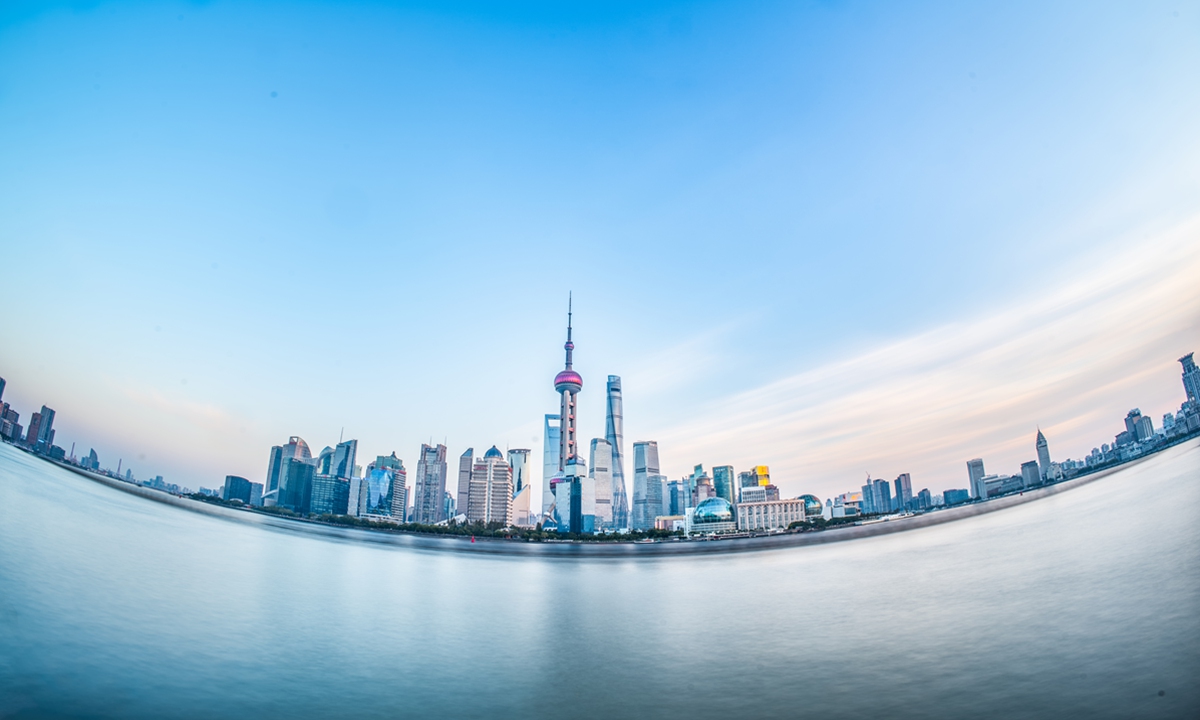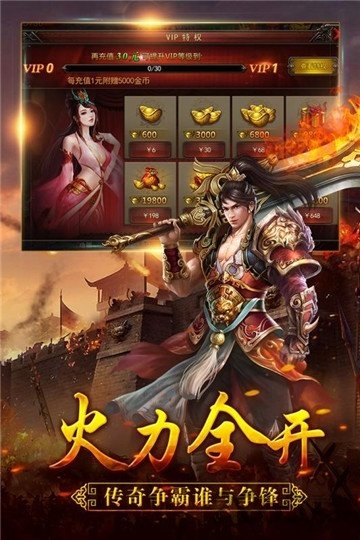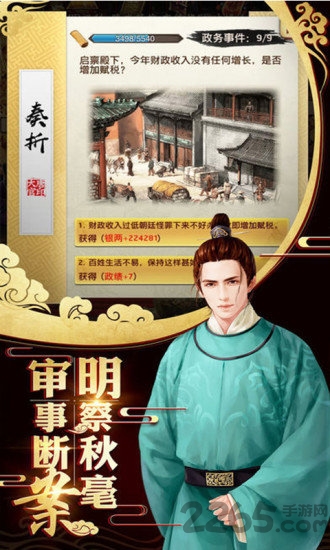
A scene of Shanghai.Photo: VCG
Editor's Note:
For Chinese people, the past decade has been epic and inspirational. The country, under the leadership of the Communist Party of China (CPC) Central Committee with Comrade Xi Jinping at the core, has made great endeavors in boosting its economy, deepening reforms, improving the rights of its people and acting as a responsible global power.
"[The Global South] can learn from the Chinese example in many areas, such as methods for eradicating poverty, dealing with the environmental crisis, technological advances, and the need for long term development planning, among many others." Marco Fernandes (Fernandes), a research fellow with Tricontinental: Institute for Social Research, said in an interview with the Global Times (GT) reporter Wang Wenwen.
This is the 34th article of the Global Times series about this special decade.
GT: How do you see China's development over the last decade? What changes have left you the deepest impression?
Fernandes: The transformations that China has undergone in the last decade are impressive. From a macroeconomic point of view. China has overtaken the US in its GDP based on PPP (which is the real measure) since 2014. Between 2013 and 2021, China nearly doubled its GDP and its GDP per capita. The country now accounts for 18.5 percent of global GDP in nominal terms and contributed to more than 30 percent of global growth over the past decade. China has also established itself as the largest industrial power in this period and today produces almost 30 percent of all manufacturing on the planet. In addition, China has become the largest trading partner of more than 120 countries and regions, occupying a position that belonged to the US for decades.
But I would like to highlight four major challenges that the CPC, under the leadership of Xi Jinping, has faced in the past decade, which I think are extraordinary and have been instrumental in strengthening the leadership of the Party:
First, fight against corruption: In 10 years, the CPC has investigated 4.52 million cases of corruption and 4.44 million people were punished.
Second, eradication of extreme poverty: Compared with classic cash transfer programs (such as the one done in Brazil), in my opinion, the Chinese program innovated in two things: first, in the capacity to mobilize a large part of society, in the public and private sectors, to face the challenge; second, in the creation of thousands of productive projects (mostly rural cooperatives), generating employment and income for families. In February 2021, China announced that extreme poverty in the country had been eradicated.
Third, fighting the climate crisis and restoring the environment: 10 years ago, anyone who went to Beijing, or any major Chinese city, was overwhelmed by air pollution. But Xi has made this issue one of the priorities, with the "clear waters, lush mountains" policy and the concept of an "ecological civilization." Since then, China has taken numerous environmental restoration initiatives, such as planting 64 million hectares of trees - reaching 23.04 percent forest cover in the country - opening five new national parks to defend biodiversity, and, in seven years, reducing air pollution in big cities by 40 percent. A big challenge now is to decrease coal-based energy dependence. China has committed to reaching peak carbon emissions in 2030 and neutrality in 2060. To this end, it is now by far the largest investor and producer of renewable energy, having 39 percent of global installed solar power capacity, and its use of clean energy has jumped from 14.5 percent to 25.5 percent in the last decade. This is still a huge challenge ahead and we know that no single country can address the climate crisis question alone. In this sense, I think that China has demonstrated its leadership on the international stage with its bold and necessary commitments.
Fourth, control of the pandemic: It is important to remember that China was able to control the spread of COVID for three years, had just around 5,200 deaths by November 2022, and saved millions of lives with its efforts. On the other hand, countries like the US, UK, India, and Brazil, among others, failed to protect their population and saw millions of people die in these years.
GT: How do you evaluate the role of the Communist Party of China in these developments? What does the consistency of China's policy as well as China's stability mean for the world?
Fernandes: I believe that one of the main virtues of the CPC, since its foundation, is its resilience and its capacity for permanent self-criticism, learning from its mistakes and adapting to new challenges, or as Deng Xiaoping said, "crossing the river by feeling the stones." That is why the Party has remained in power since 1949 and has been able to overcome several very difficult moments and to maintain its legitimacy. With some 97 million members, the Party has an incredible ability to mobilize people, knowledge, and material resources to deal with the nation's great challenges, as in the examples of poverty eradication, the environmental crisis, and the COVID pandemic.
At the time of the Trump administration, Russian diplomats said that negotiating with the US was like playing chess with a pigeon. At some point, it climbs up on the board, knocks down the pieces, and leaves. In some ways, the Biden administration has behaved similarly, as in the case of the war in Ukraine, the tensions in Taiwan, and the escalation of sanctions against China.
At a time of so many tensions and instabilities in the world, with economic, political, and environmental crises, with wars in various parts and the return of the threat of a nuclear conflict, the consistency and stability of the CPC represent a light at the end of the tunnel for humanity, especially for the Global South.
GT: Your institute, Tricontinental: Institute for Social Research, mainly does research relating to the three continents of Africa, Asia and Latin America. The three continents strived for national liberation in the past. In today's world, what significance does the unity and development of the three continents carry?
Fernandes: In a way, for the countries of the Global South, the struggle for national liberation continues to exist. By liberation, I mean a country's capacity to construct a development project that prioritizes national sovereignty and the people, that is not beholden to foreign interests, and that creates the conditions for the people to have a good economic and social standard of living. The Imperialism of Western great powers continues to be the biggest obstacle to our national liberation in Latin America, Africa, and Asia. Fortunately, in the last two decades, the countries of the Global South have advanced integration processes at the regional level (UNASUR, CELAC, AU, EAEU, Arab League, ASEAN) and at a broader level, such as the BRICS and the SCO. With ups and downs, all of these platforms carry the potential to create alternatives for building a multipolar world that challenge the hegemony of Washington and Brussels. Interesting to note that China is involved in almost all of them, either directly (BRICS, SCO, ASEAN), or through forums (China-CELAC, FOCAC, etc.). This shows how much the Chinese government is prioritizing the question of sovereignty for Global South countries as China pledged to help narrowing the development gap between developed and developing countries.
I believe that with the advancement of political and economic contradictions at the global level, such platforms tend to get stronger. One of the most immediate challenges will be the creation of alternatives to the US financial domination of the world through the dollar. 2023 promises to be a year of advances for our countries. The election of President Lula will bring Brazil back to the scene of global geopolitics. I am convinced that the partnership between Brazil and China will breathe new life into our initiatives in the Global South.
GT: The three continents are broadly referred to as the "Global South." Some Westerners claimed that the Global South is now being pushed into China's embrace. What's your view?
Fernandes: While in recent decades the Western powers have continued to promote wars (Iraq, Afghanistan, Libya, Syria, Yemen, Ukraine, etc.) and coups to secure their political and economic interests in the Global South, China has worked hard to help create development alternatives for our countries. The biggest example of this is the BRI, which is present in more than 100 countries, has mobilized more than $1 trillion in resources, and has been responsible for building an unprecedented infrastructure in our countries. For this reason, the Western powers continue to promote myths such as the "Chinese debt trap" in Africa, which has already been debunked by research from leading universities in the West (such as the China-Africa Research Initiative at Johns Hopkins University, as well as research at Columbia and Oxford Universities), which shows that rich countries and their private banks own more than two-thirds of the debt of African countries. The process of demonizing China based on fake news is nothing but a battle of narratives that tries to hide the inability of the imperialist powers to offer any alternative for developing countries, while China offers concrete possibilities.
GT: How will China's unique path of development inspire Global South countries in the next five to 10 years?
Fernandes: Of course, it is impossible to reproduce the Chinese model for the entire Global South. As you say, it is "unique." It is based on an ancient civilization, a socialist revolution, and a process of building socialism with Chinese characteristics over the last seven decades, led by the CPC. Unfortunately, a socialist revolution is not on the near horizon for virtually all countries in the Global South. However, I believe that our countries can learn from the Chinese example in many areas, such as methods for eradicating poverty, dealing with the environmental crisis, technological advances, and the need for long term development planning, among many others. China can also learn from other countries in the Global South. I believe that the most important thing at this moment is for us to strengthen global platforms such as BRICS and SCO, which is attracting the interest of more and more countries and should expand in the coming years. Through these platforms we will be able to deepen dialogue and exchange between our governments and peoples to create concrete alternatives together for our sovereign development.
GT: You are a supporter of the No Cold War campaign. Do you think another Cold War could be avoided? In the short and medium-to-long term, how do you see the consequences of the US containment strategy against China to the world?
Fernandes: I would say that we are already living a kind of new cold war. Our major challenge now will be to avoid a new global hot war. The example of the war in Ukraine is frightening and shows what the Western powers are willing to do to protect their hegemony in the world. Countless analysts and politicians in the US already say that Russia and China are "threats" that must be contained. Our biggest danger is the fact that the US has already realized that it is almost inevitable that China will overtake them economically and technologically in the next two decades - hence the increased sanctions against China - and they may even provoke a war to prevent this from happening. The escalation of provocations regarding Taiwan is very worrying. The US Congress is debating the Taiwan Policy Act, which would elevate the status of the Chinese island to something close to a country for the US government. Both actions would be seen by Beijing as serious provocations. We live in a very dangerous historical moment. Our only hope is unity and cooperation among the countries of the Global South to stand up to the aggressions of a desperate and declining empire.














评论